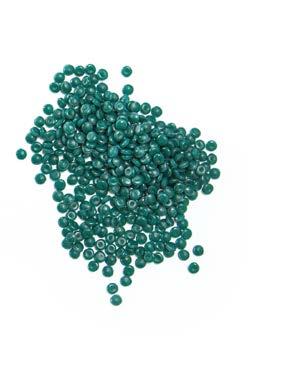
3 minute read
New VACUNITE® skid
Business News
INK REMOVAL OF PRINTED FILM
> COOPERATION BETWEEN CADEL DEINKING AND KEYCYCLE, A SUBSIDIARY OF THE EREMA GROUP <
The Spanish company Cadel Deinking has been working on the removal of printing inks from plastic surfaces since 2014 and has developed an innovative process for this purpose. In combination with EREMA recycling technology, this ink removal process has already proven its suitability for real-life applications involving the recycling of printed inhouse and post-industrial film waste. This represents a milestone in safely feeding recycled pellets made from originally printed film back into the production process.
The EREMA Group with its subsidiary KEYCYCLE is now intensifying its cooperation with Cadel Deinking to drive this development forward technologically and form a product that meets industrial standards. KEYCYCLE exclusively took over worldwide sales and project implementation of this unique technology, which is patented in over 20 countries. The company operates the pilot system in Sant Vicente del Raspeig (Alicante, Spain) together with Cadel Deinking. "Together we are making ink removal technology a process step that can be integrated into the plastics recycling chain," says Michal Prochazka, Managing Director of KEYCYCLE and Pablo Cartagena, Business Development Manager at Cadel Deinking.
ANOTHER MILESTONE FOR THE CIRCULAR ECONOMY
Printing inks are a major challenge in the recycling of plastics and there are different strategies for solving this challenge. Reducing printing directly on the packaging film is a requirement for the Design for Recycling strategy, but it is often not possible to eliminate it completely in the many different fields of application for film products. That is why
Heavily printed film before the deinking process Film after the deinking process
Regranulate after the extrusion process
ink removal technologies are still being investigated. From the beginning, EREMA has also been committed to developing solutions for processing heavily printed plastics in the extrusion process. The company has been working together with Cadel Deinking since June 2020 with the aim of removing printing inks during the recycling process. The technology they have developed removes the ink from the shredded film before the material is fed into the recycling extruder. Combined with an EREMA INTAREMA® extruder, the ink removal process has been so successful during test runs using the pilot system that orders have already been placed for five Deinking systems.
“We see great potential in developing this new technology for recycling solutions to process in-house and post-industrial waste film ecologically and cost-effectively. It will increase our market presence and expand our range of products for particularly challenging turnkey recycling solutions.
It is also an important step towards closing plastic cycles,” says Manfred Hackl, CEO of the EREMA Group, explaining the decision to intensify the cooperation with Cadel
Deinking. He is also thinking about developing the technology so it can be integrated into washing systems made by various manufacturers. Business News
CIRCULAR ECONOMY, TOGETHER.
EREMA Group's vision is to be the central force in making the circular economy for plastics a reality in 2030.
To achieve this ambitious goal, the companies in the group not only develop and build innovative recycling machines, technologies and modern services for a wide range of recycling applications, but also actively communicate with partners, customers, organisations and networks. Communication between the participants along the recycling chain and throughout the plastics industry is an essential key to closing loops and coordinating different processes and technologies of upstream and downstream process steps. Working together to create sustainable solutions for driving the circular economy forward as a whole is one of EREMA Group's central concerns.
Important partners, organisations and networks with whom the EREMA Group is working together to drive forward the circular economy.










